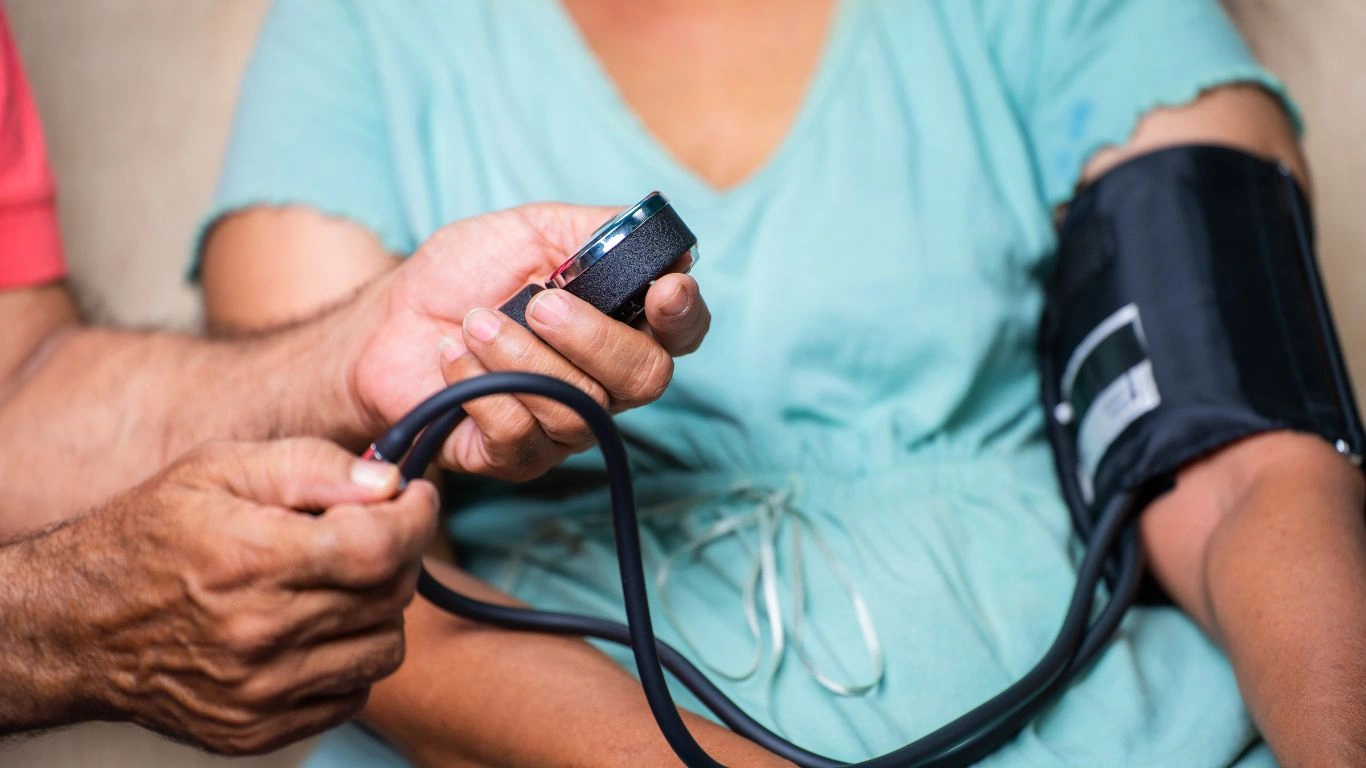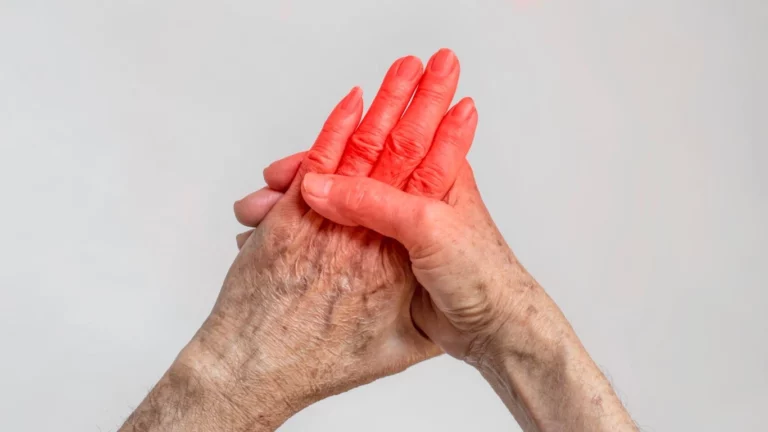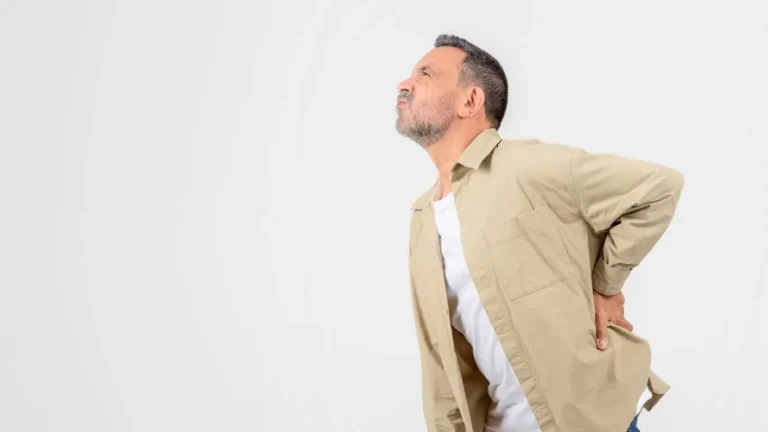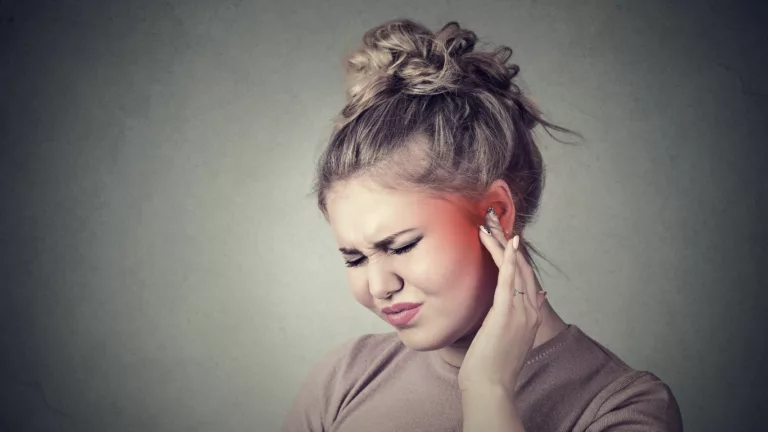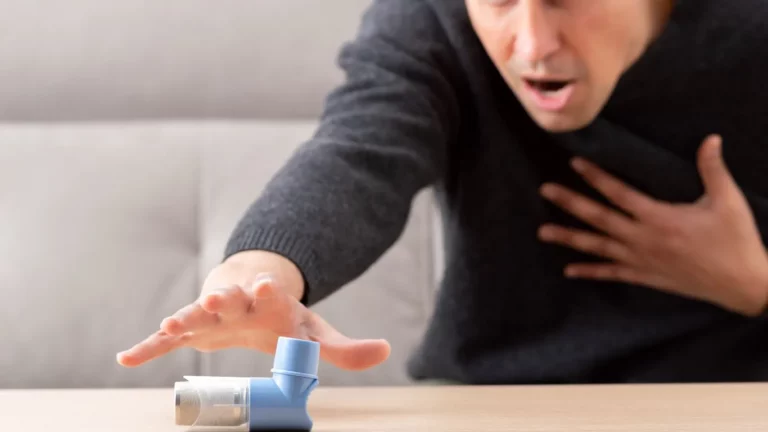How Standing Up Too Fast Affects Blood Pressure: Prevent Dizziness & Improve Circulation
As an Internal Medicine Physician with a focus on Hypertension Management, I’ve encountered many patients who struggle with the sensation of dizziness or lightheadedness after standing up too quickly. It’s something we all experience from time to time, but did you know this simple action can actually affect your blood pressure in a significant way? This phenomenon, which is known as orthostatic hypotension, can be more than just a fleeting inconvenience. In fact, understanding how standing up too fast affects blood pressure is crucial for managing both short-term discomfort and long-term health risks, particularly for those of us managing hypertension.
What Happens When You Stand Up Too Quickly?
When you stand up too quickly, gravity causes blood to pool in your legs and lower body, which can temporarily reduce the amount of blood returning to your heart. Your heart responds by working harder to pump blood to your brain and other vital organs. Ideally, your body’s circulatory system should quickly adjust to this change, maintaining a normal blood pressure. But when it doesn’t adjust fast enough, you might feel lightheaded, dizzy, or even faint.
This sudden drop in blood pressure, known as orthostatic hypotension, happens when your body doesn’t compensate for the gravity-induced shift in blood volume quickly enough. It’s something that’s particularly common in patients with hypertension or those taking medications to lower their blood pressure. But even healthy individuals can experience this sensation. The issue is that for those managing high blood pressure, the consequences of this drop can be more significant.
Understanding Orthostatic Hypotension
Orthostatic hypotension refers to the drop in blood pressure that occurs when you stand up suddenly. Typically, your blood vessels constrict and your heart rate increases to maintain blood flow and prevent dizziness. However, in some people, these mechanisms aren’t as efficient. This results in a temporary reduction in the blood supply to the brain, which can lead to symptoms like:
- Dizziness or lightheadedness
- Blurred vision
- Fainting
- Feeling weak or unsteady
As a physician, I often explain to my patients that while this sensation is commonly dismissed as “just getting up too fast,” it’s actually a sign that their body may be struggling to adjust to changes in blood pressure. It’s especially concerning for those with hypertension, as it could indicate that their medications are lowering their blood pressure too much, or that their body’s regulatory mechanisms are not working as effectively as they should be.

The Link Between Blood Pressure and Standing Up Too Fast
So, how exactly does standing up too fast affect your blood pressure? The process involves a complex interaction between your circulatory system and the nervous system. When you stand up, gravity causes blood to pool in your lower extremities. In response, your body needs to make a series of rapid adjustments to maintain a steady blood pressure:
- Blood Vessel Constriction: Normally, your blood vessels constrict to push the blood back towards your heart and brain. This increases your blood pressure to ensure vital organs receive sufficient oxygen.
- Heart Rate Increase: At the same time, your heart rate increases to compensate for the drop in blood pressure, helping to restore normal circulation.
- Nervous System Adjustment: The autonomic nervous system plays a role in regulating these changes, ensuring that your blood pressure returns to normal within seconds of standing up.
However, in individuals with high blood pressure, this process doesn’t always function smoothly. When standing up quickly, the sudden drop in blood pressure can feel more pronounced, especially if you’re on medications that dilate blood vessels or lower blood pressure in general. This is why it’s important for those with hypertension to manage their medications carefully and understand the impact of such movements on their health.
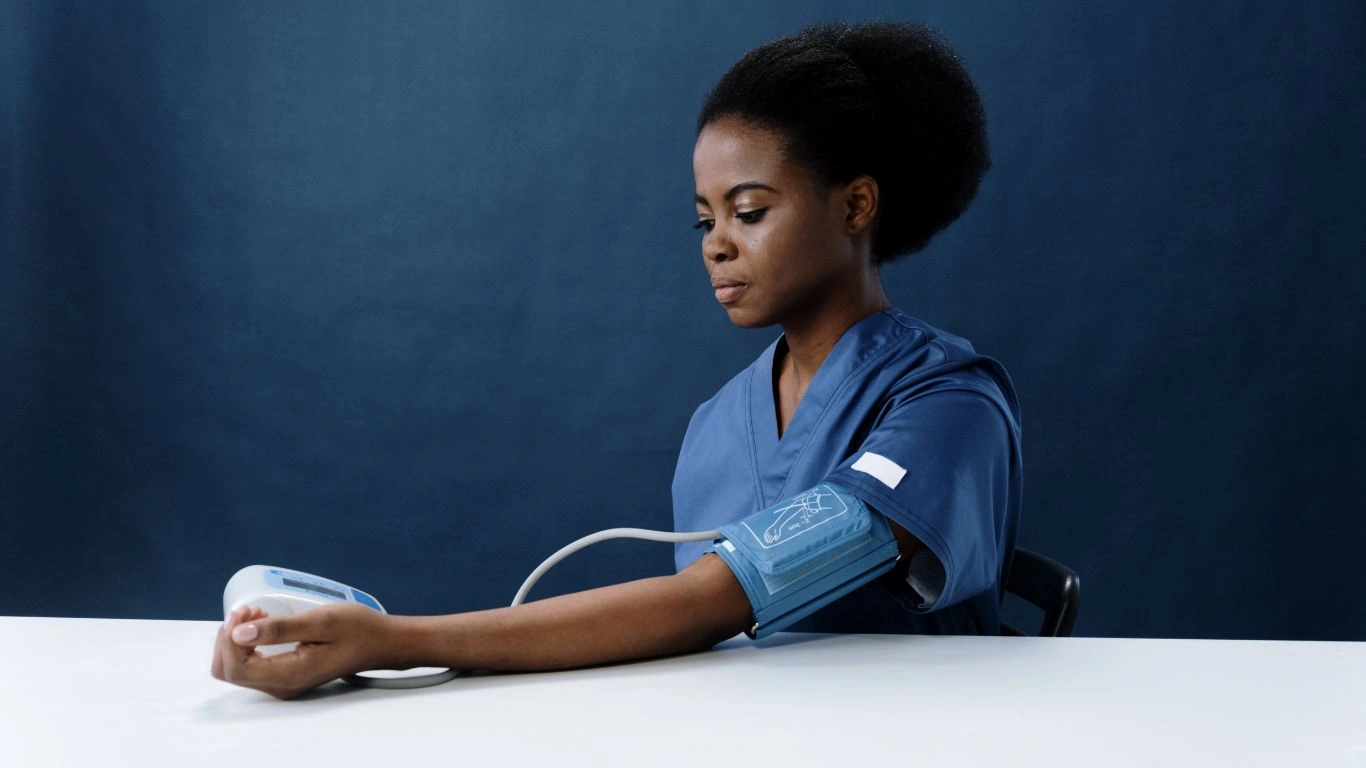
Who Is at Risk of Orthostatic Hypotension?
While anyone can experience a drop in blood pressure after standing up too quickly, certain individuals are more prone to orthostatic hypotension, particularly those with hypertension or related cardiovascular conditions. As someone who regularly treats patients with high blood pressure, I’ve seen firsthand how their risk of experiencing dizziness upon standing is often exacerbated by medications like beta-blockers and diuretics. These drugs can have a profound impact on your blood pressure regulation, especially if not adjusted properly.
In addition to hypertension and medication use, other risk factors include:
- Older age
- Dehydration
- Extended bed rest or inactivity
- Heart problems, such as heart failure or arrhythmias
- Parkinson’s disease or other neurological disorders
If you find that you’re frequently feeling lightheaded when standing up, it’s worth paying closer attention to your lifestyle and health conditions. A simple adjustment, like getting up more slowly or avoiding sudden movements, might be a first step. However, if you’re managing hypertension or other underlying health issues, it’s crucial to speak with your doctor about your symptoms. In some cases, your blood pressure management plan may need to be adjusted to prevent these uncomfortable episodes.
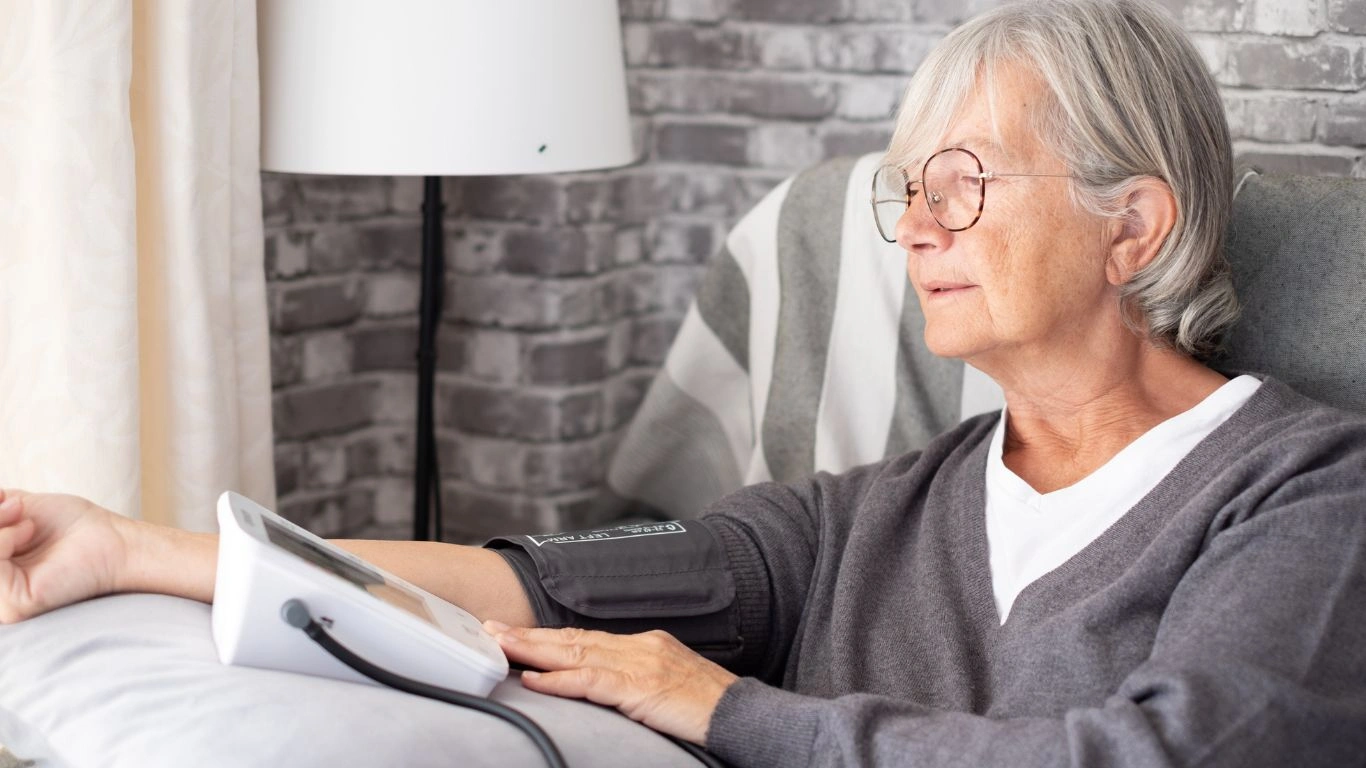
Why Standing Up Too Fast is Especially Concerning for Those with Hypertension
For patients with hypertension, standing up too fast can present more than just a brief inconvenience. The feeling of dizziness or lightheadedness may actually signal that their blood pressure has dropped too low, which can be a sign of poor blood pressure management or an imbalance in their medications. The drop in blood pressure might be temporary, but if it happens frequently, it can cause serious complications, including:
- Falls and injury
- Increased risk of stroke or heart attack
- Worsening of heart failure symptoms
That’s why I often tell my patients that while occasional dizziness is usually not cause for alarm, persistent symptoms should be evaluated, especially if you have a history of hypertension or cardiovascular disease. Your body is sending a signal that something might not be quite right, and as your doctor, it’s my job to help you understand and address the issue.
How to Manage Blood Pressure When Standing Up Too Quickly
Now that we’ve established how standing up too fast can affect your blood pressure, especially if you have hypertension, the next question is: how can we manage it? As someone who works closely with patients dealing with high blood pressure, I’ve seen how small changes can make a big difference in managing these episodes. The good news is that there are practical strategies you can adopt to reduce the frequency and intensity of dizziness or lightheadedness when standing up. Some of these tips come from personal experience, both as a healthcare provider and someone who understands the importance of lifestyle changes.
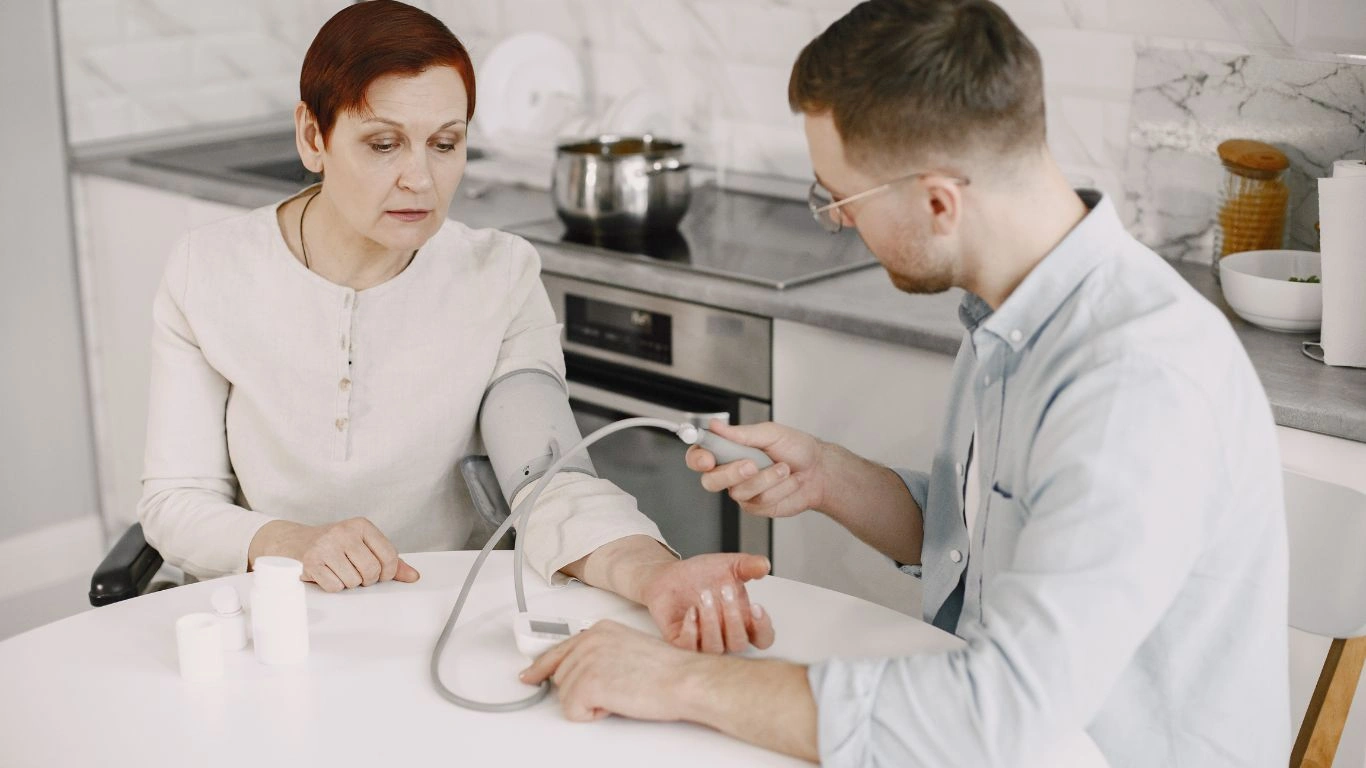
1. Slow and Steady: The Power of Gradual Movements
One of the simplest and most effective ways to prevent dizziness when standing up is to do it slowly. I always tell my patients to avoid jerky movements. When you’re sitting or lying down, take a few seconds to move your legs and feet before you stand. You can even try gently flexing your feet and moving your ankles to get your circulation going before you rise. Once you’re up, stand still for a moment to allow your blood pressure to stabilize.
For those managing hypertension, this is especially important. Sometimes, we get so caught up in our day-to-day activities that we forget how much of an effect fast movements can have on our bodies. If you’re taking medications that lower your blood pressure, getting up too quickly can be more disruptive. By standing up slowly, you give your body a chance to adjust, preventing that sudden drop that causes dizziness.
2. Stay Hydrated: Hydration is Key
Dehydration is one of the most overlooked causes of low blood pressure. It’s a vicious cycle—when you’re dehydrated, your blood volume drops, which can make it harder for your body to maintain normal blood pressure. This is especially true if you’re dealing with hypertension. As a part of managing blood pressure, I always recommend that my patients keep themselves well-hydrated throughout the day. The simple act of drinking water can help to maintain blood volume and improve circulation, which in turn helps stabilize your blood pressure.
If you’re someone who often feels lightheaded when standing up quickly, try sipping water throughout the day, particularly before you get out of bed in the morning. Adding in a pinch of salt to your water can also help your body retain more fluids and prevent that sudden drop in blood pressure. In my practice, I’ve noticed a significant improvement in many of my patients’ symptoms just by encouraging them to drink more water and stay hydrated.
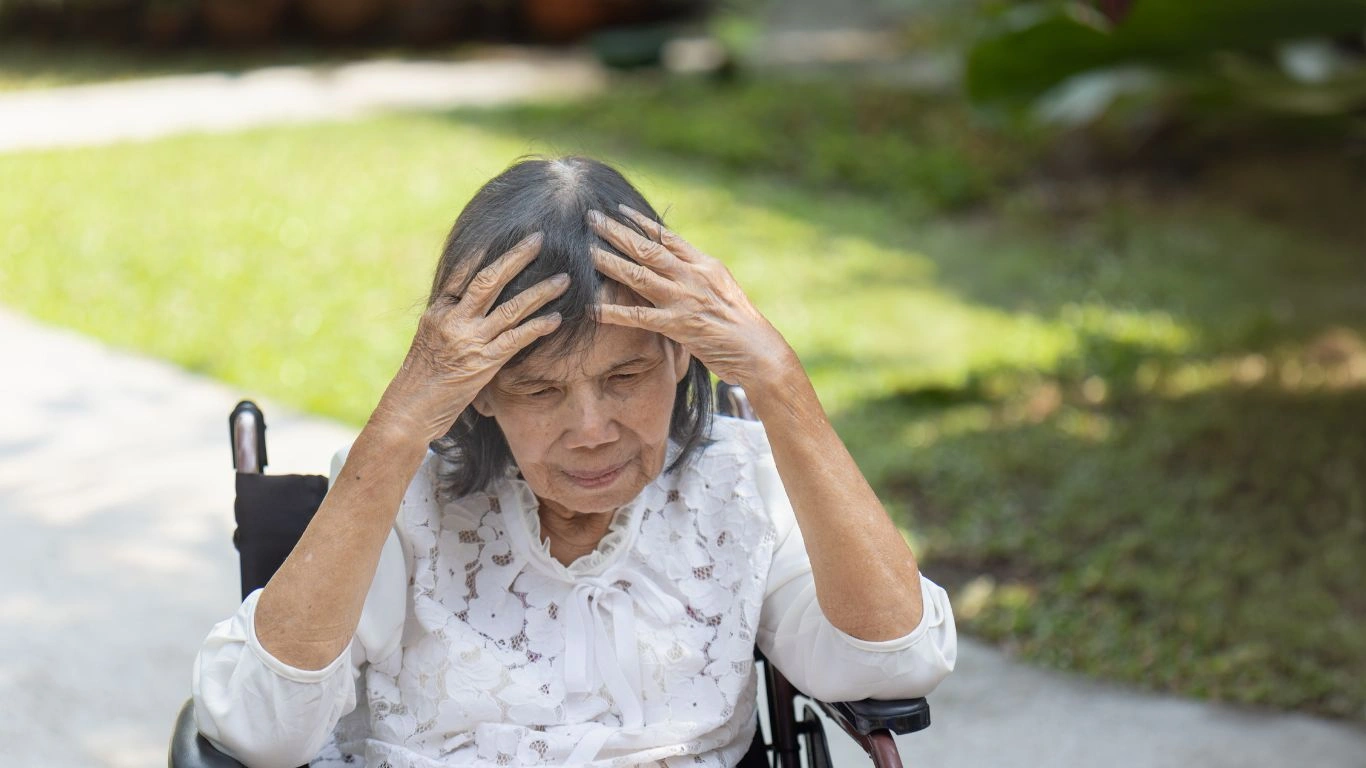
3. Compression Stockings: Support for Your Circulation
Compression stockings might sound like something for athletes or elderly people, but they can be incredibly helpful for managing low blood pressure, especially after standing up too quickly. These stockings apply gentle pressure to your legs, helping to prevent blood from pooling in your lower body and promoting better circulation. This is particularly useful for people with hypertension, as it can reduce the sensation of dizziness when standing.
Although it might feel strange at first, many of my patients have found relief after using compression stockings regularly. It’s a simple, non-invasive way to help your body adjust more smoothly when standing up. In fact, I’ve recommended them to patients who suffer from frequent dizziness, and many have noticed a significant improvement in their symptoms. If you’re someone who spends a lot of time sitting or standing at a desk, these stockings can help mitigate the effects of poor circulation that contribute to dizziness.
4. Medication Adjustment: Talk to Your Doctor
If you’re already on medication for hypertension, it’s important to talk to your doctor about any side effects you’re experiencing, including dizziness or lightheadedness when standing. Some medications, particularly diuretics or beta-blockers, can cause your blood pressure to drop too much, making you more prone to orthostatic hypotension. If this is happening to you, it may be time to review your medication regimen with your healthcare provider.
As a physician, I’ve seen how a small adjustment in dosage or a change in medication can make a world of difference in a patient’s quality of life. It’s important not to adjust your medication on your own, as this could have unintended consequences. Always reach out to your doctor before making any changes to ensure you’re managing your blood pressure safely. With the right combination of lifestyle changes and medication adjustments, managing dizziness caused by standing up too quickly can become much more manageable.
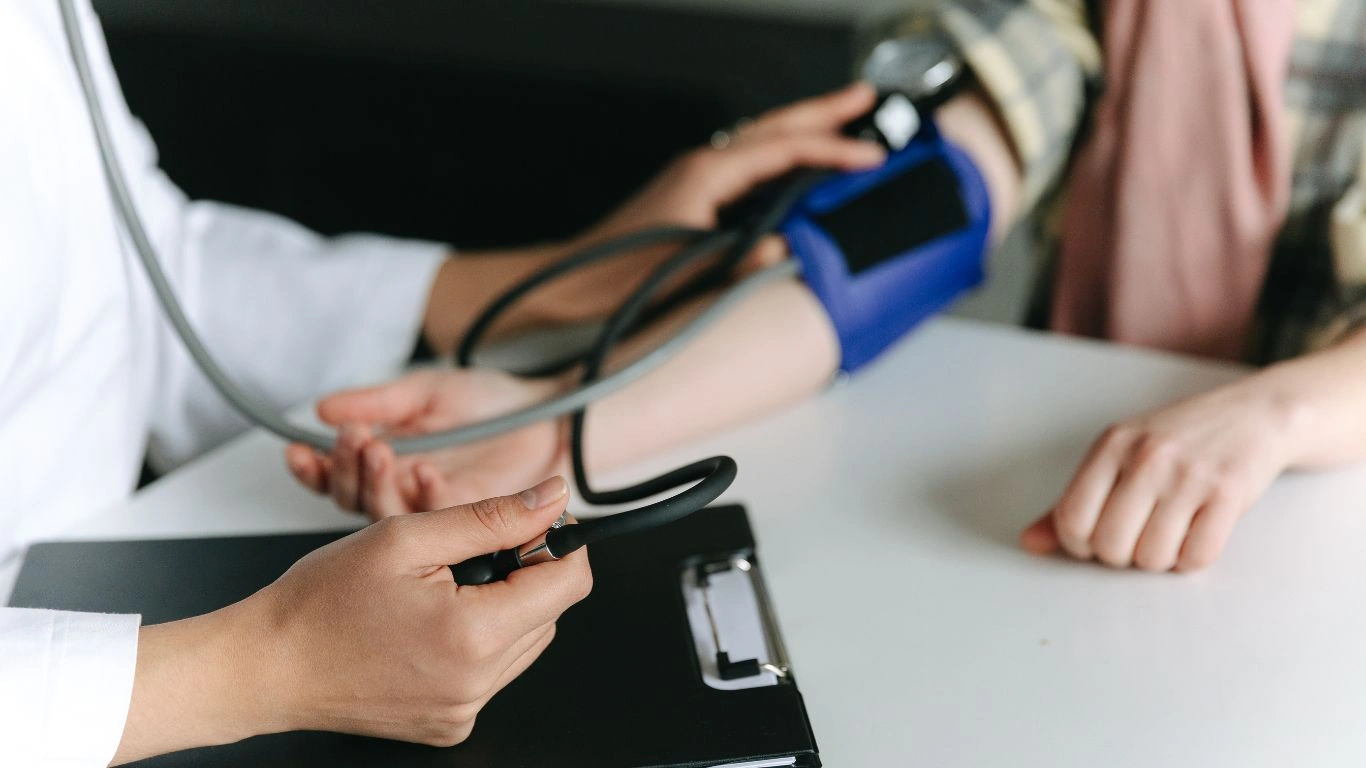
5. Physical Activity: Keep Your Body Moving
Another key strategy for managing blood pressure and reducing dizziness is to stay active. Regular physical activity helps improve circulation and can stabilize your blood pressure over time. I’ve always encouraged my patients to engage in some form of exercise that they enjoy. Whether it’s walking, swimming, or even yoga, getting your body moving regularly can have lasting benefits for your heart health and blood pressure regulation.
If you’re new to exercise or haven’t been active in a while, it’s important to start slow and gradually build up your activity level. Even light exercise can make a big difference in how your body responds when you stand up. Additionally, strength training can help improve muscle tone and circulation, further reducing the likelihood of dizziness when transitioning from sitting or lying down to standing. Exercise not only strengthens your cardiovascular system but also helps maintain a healthy weight, which is key for controlling high blood pressure.
6. Monitoring Blood Pressure Regularly
Finally, one of the most effective ways to manage the effects of standing up too quickly on your blood pressure is through regular monitoring. I always recommend that my patients with hypertension track their blood pressure at home to better understand how their body is reacting to certain movements, medications, and lifestyle choices. Home monitoring gives you immediate feedback, which can help you and your healthcare provider make more informed decisions about your treatment plan.
If you notice that your blood pressure consistently drops when you stand up quickly, it might be time to revisit your treatment approach with your doctor. Consistent monitoring also allows you to spot trends and make adjustments before problems escalate. It’s one of the most empowering things you can do for your health, as it gives you greater control over your blood pressure management.
When to Seek Medical Help for Dizziness or Low Blood Pressure
While most cases of dizziness when standing up too quickly can be managed with simple lifestyle adjustments, there are times when medical intervention is necessary. As a physician, I always remind my patients that if their symptoms worsen or become more frequent, it’s time to have a conversation with their healthcare provider. Ignoring these symptoms can lead to complications, especially if there’s an underlying condition contributing to the problem. But how do you know when to seek medical help? Let’s dive into the signs that indicate it’s time to take things to the next level.
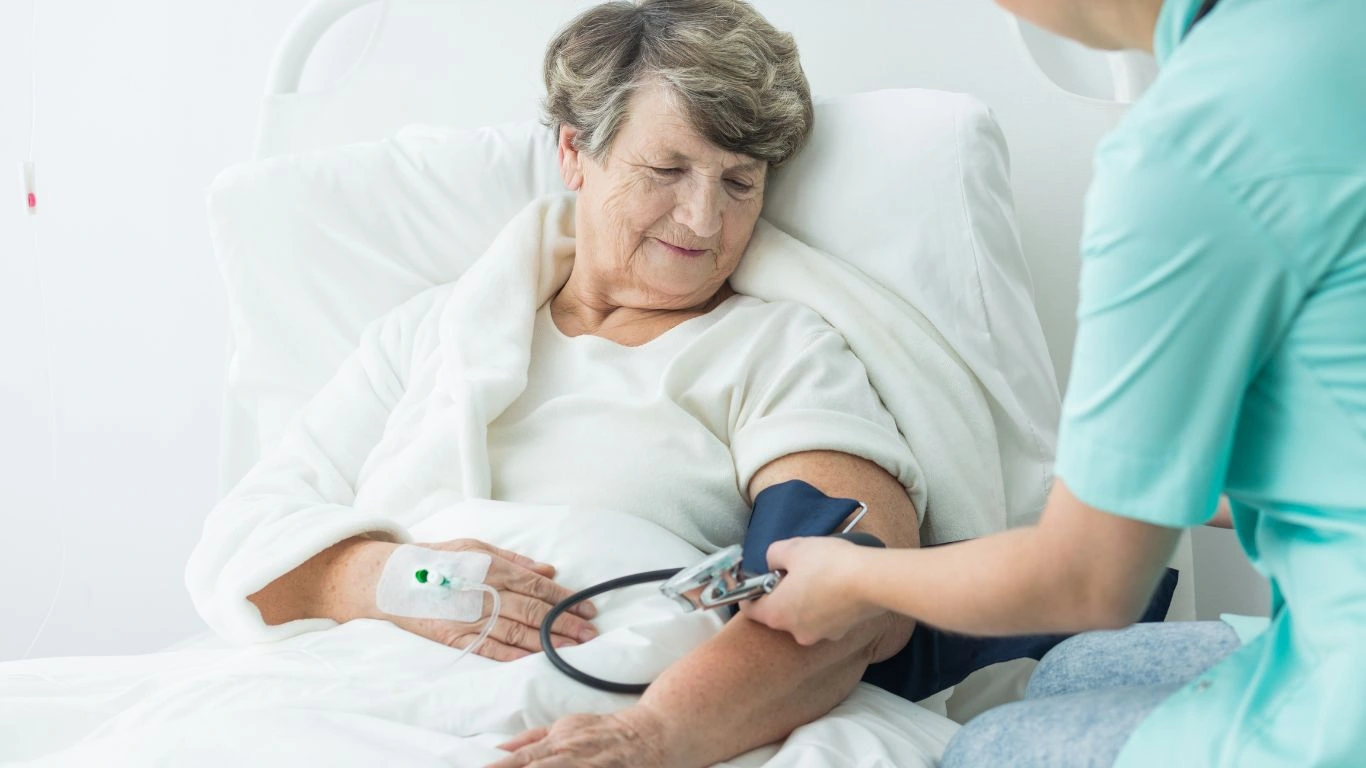
Signs You Should Talk to Your Doctor
There are several red flags to watch for when it comes to standing up quickly and experiencing dizziness. It’s not just about the occasional lightheadedness but recognizing when it’s happening too often or with more intensity. If you’re managing hypertension or taking medication to lower your blood pressure, these signs can indicate that adjustments are needed.
- Frequent or Severe Dizziness: If you experience dizziness every time you stand up or if it’s severe enough to make you feel like you might faint, it’s time to talk to your doctor. Repeated episodes can suggest that your blood pressure is fluctuating too much or that your medications aren’t doing their job effectively.
- Blurred Vision or Fainting: Any time dizziness is accompanied by blurred vision, fainting, or confusion, seek medical attention immediately. These could be signs of more serious issues, such as cardiovascular problems or a more significant drop in blood pressure.
- Difficulty Recovering: If it takes you several minutes to feel back to normal after standing up, your body might not be compensating for the change in position well enough. This could indicate that your circulatory system or nervous system is not functioning optimally, and your doctor may need to run some tests.
- Chest Pain or Shortness of Breath: If you experience chest pain, shortness of breath, or irregular heartbeats along with dizziness, it’s essential to seek emergency medical care. These symptoms could point to a heart problem, which requires immediate attention.
It’s important to remember that while occasional dizziness may not be a cause for concern, if you’re experiencing any of the above symptoms regularly, don’t hesitate to schedule an appointment with your healthcare provider. We can help diagnose the issue and ensure your blood pressure is being managed safely.
Prevention Tips for Long-Term Blood Pressure Health
Now that we’ve covered the immediate steps you can take to manage dizziness and blood pressure fluctuations, it’s equally important to think long-term. The best way to keep your blood pressure in check and avoid any problems related to standing up too quickly is through consistent prevention. This includes not only managing your hypertension but also maintaining a healthy lifestyle that promotes overall cardiovascular health.

Healthy Diet for Blood Pressure Control
A balanced diet plays a key role in managing hypertension and preventing the dizziness associated with standing up too quickly. Foods rich in potassium, magnesium, and fiber can help lower blood pressure, while foods high in sodium and unhealthy fats can raise it. I always encourage my patients to focus on eating plenty of fruits, vegetables, whole grains, lean proteins, and healthy fats.
The DASH diet (Dietary Approaches to Stop Hypertension) is one of the most well-known and effective diets for controlling blood pressure. It emphasizes foods that are rich in nutrients like potassium and magnesium, while limiting salt, sugar, and unhealthy fats. When you incorporate more of these foods into your meals, you’re giving your circulatory system the nutrients it needs to stay strong and responsive—especially when you stand up quickly.
Exercise Regularly to Keep Your Heart and Circulatory System Healthy
As we discussed earlier, regular physical activity is one of the most powerful ways to regulate blood pressure and improve circulation. I can’t emphasize this enough: exercise doesn’t just help you maintain a healthy weight—it also improves your body’s ability to respond to changes in blood pressure. If you’re actively engaging in cardio exercises, strength training, or even low-impact activities like walking or yoga, your body will adapt better when standing up quickly.
Even if you’ve struggled with exercise in the past, it’s important to start slowly and work your way up. In my practice, I’ve seen people make significant improvements in their overall health, just by committing to consistent physical activity. A little goes a long way!
Get Enough Rest and Manage Stress
Stress can wreak havoc on your blood pressure, and it’s important to make relaxation a priority. Chronic stress can lead to elevated blood pressure, making your circulatory system less efficient and more prone to fluctuations. I always recommend that my patients find time to relax each day, whether it’s through deep breathing exercises, meditation, or simply taking time to unwind.
Along with stress management, getting enough rest is vital. Sleep plays a critical role in regulating blood pressure, so make sure you’re aiming for 7-9 hours of quality sleep each night. If you’re sleep-deprived, your body’s natural ability to regulate blood pressure is compromised, which could increase your chances of experiencing dizziness when you stand up.
References and Further Reading
Disclaimer: This article is intended for informational purposes only and should not be construed as medical advice. Always consult your healthcare provider before making any changes to your diet, exercise routine, or medication regimen. If you have concerns about your blood pressure or any other health conditions, seek professional medical attention.

Dr. Gwenna Aazee is a board-certified Internal Medicine Physician with a special focus on hypertension management, chronic disease prevention, and patient education. With years of experience in both clinical practice and medical writing, she’s passionate about turning evidence-based medicine into accessible, actionable advice. Through her work at Healthusias.com, Dr. Aazee empowers readers to take charge of their health with confidence and clarity. Off the clock, she enjoys deep dives into nutrition research, long walks with her rescue pup, and simplifying medical jargon one article at a time.

